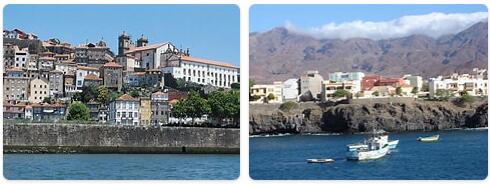Cameroon 2018
In 2018, Cameroon had a population of approximately 24 million people. The economy is largely based on agriculture, with forestry and fishing also making up a significant portion of the GDP. Petroleum is the main export, while coffee and cocoa are also important exports. French and English are both official languages although other languages such as Fulfulde and Ewondo are also spoken. According to extrareference, Cameroon is a unitary presidential republic with an executive branch headed by the President who is elected for a seven year term. The legislative branch consists of a bicameral parliament (the Senate and the National Assembly). In terms of foreign relations, Cameroon maintains diplomatic ties with over 70 countries around the world and has close ties with its neighbors in Central Africa such as Gabon, Congo-Brazzaville and Equatorial Guinea. The government also works closely with international organizations such as the United Nations, African Union (AU), World Bank, International Monetary Fund (IMF), World Trade Organization (WTO) and Economic Community of Central African States (ECCAS).
Yearbook 2018
Cameroon. Seven years after the last election, this year it was again time to elect the president. Those who had hoped that 85-year-old Paul Biya, who had ruled the country since 1982, would be stepped aside. In July, Biya announced partly that the presidential election would be held in October and partly that he himself intended to run for office. On the other hand, both parliamentary and local elections were postponed by one year because it was considered too difficult to carry them out at the same time as the presidential election.
- According to Abbreviationfinder: CMR is an three letter acronym for Cameroon.
The opposition did its best to challenge Biya. Already in January, nine opposition parties and activist groups formed a common platform and supported the presidential candidate Akere Muna, who belongs to Cameroon’s English-speaking minority. Muna is a lawyer and was previously vice chairman of the anti-corruption organization Transparency International. Instead of appointing party leader John Fru Ndi, who lost three times against Biya, the largest opposition party Social Democratic Front (SDF) chose to launch businessman Joshua Osih as his candidate. Osih is also English-speaking, unlike Paul Biya, who belongs to the French-speaking majority. As recently as two days before the election, the parties Movement for Cameroon’s Rebirth (MRC) and the People’s Development Front (FDP) merged behind a joint candidate, MRC’s Maurice Kamto.
Eleven days after the election, the Election Commission announced that Biya received 71% of the vote and the second Kamto 14%. The turnout was 54%, but in the English-speaking Northwest Region and Southwest Region it was 5 and 15% respectively. Osih, among others, claimed that there was widespread electoral fraud and tried to have the election annulled, a claim that the country’s constitutional court rejected. Kamto also questioned the outcome and protests continued into November, when 38 MRC supporters were arrested by police in connection with a demonstration in the city of Bafoussam in western Cameroon.
According to Countryaah, Yaounde is the capital city of Cameroon, a country located in Central Africa. The electoral movement contributed to the increase in violence in the already conflicting English-speaking regions. At least seven people were shot dead on Election Day and the days before. In January, Sisiku Ayuk was extradited from Nigeria along with 46 of his followers. Ayuk was named president when the two English-speaking regions symbolically declared themselves independent under the name Ambazonia in October 2017. The government called the extradited separatists terrorists to be brought to justice.
At the end of May, seven separatist activists were sentenced to 10-15 years in prison for, among other things, terrorism, insurgency and rioting. Just a few days later, 22 people were killed when security forces clashed with an armed group in the Northwest region. According to the UN humanitarian coordination body OCHA, by that time around 180,000 people had been forced to flee their homes because of the violence, 20,000 of them to Nigeria. In July, the think tank International Crisis Group reported that 120 civilians and 43 people from the security forces lost their lives from the end of 2016 until May 2018. According to a report by Human Rights Watch, which also came in July, both sides had committed to aggravate situation,
In November, 90 students at a school in Bamenda in the Northwest Region were abducted by unknown perpetrators. The principal, a teacher and a driver were also kidnapped. After a few days, all the kidnapped must have been released. In November, when Paul Biya was sworn in as president for the seventh time, he vowed that the rule of the country should be decentralized, while rejecting all demands for independence for Cameroon’s English-speaking regions.



